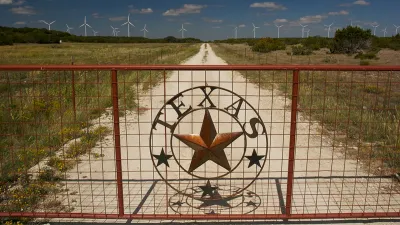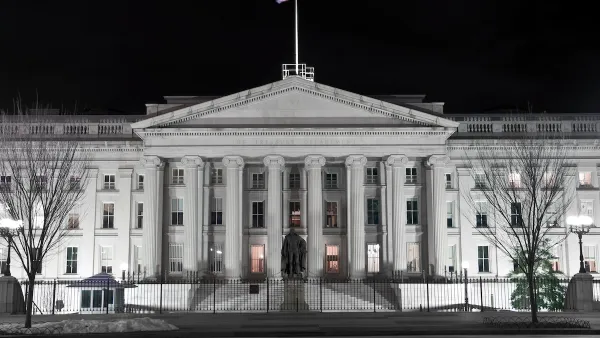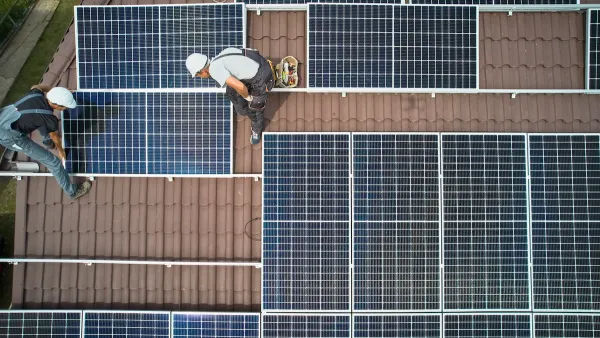As renewable energy production grows in Republican-leaning states, lawmakers are becoming less resistant to supporting clean energy policies.

“I don’t want to be naïve or to echo the predictions of previous climate Pollyannas to say that Republican cooperation is right around the corner,” writes David Wallace-Wells in The New York Times about federal efforts to promote renewable and clean energy. “But the partisan landscape may be finally changing, indeed somewhat significantly.”
For proof, Wallace-Wells points to the relatively painless adoption of the Inflation Reduction Act, “The biggest piece of climate legislation in American history,” which met with much less backlash from Republican lawmakers than other progressive legislation.
“One big reason for that is the design of the bill itself, which was both smaller in size and more targeted in scope than many of the original Green New Deal proposals. In fact, it was designed in part to blunt backlash” by largely offering incentives rather than penalties and pumping billions of dollars into local economies in ‘red’ areas, where renewable energy production is booming. “All told, according to an analysis by the Rocky Mountain Institute, the Inflation Reduction Act could deliver, on average, nearly twice as much subsidy per capita to Republican states as Democratic ones.”
Ultimately, Wallace-Wells believes the contribution to local economies will likely win over ideology. “When the government is pouring money into your backyard, it’s hard to play the NIMBY for long.”
FULL STORY: Clean Energy Is Suddenly Less Polarizing Than You Think

National Parks Layoffs Will Cause Communities to Lose Billions
Thousands of essential park workers were laid off this week, just before the busy spring break season.

Retro-silient?: America’s First “Eco-burb,” The Woodlands Turns 50
A master-planned community north of Houston offers lessons on green infrastructure and resilient design, but falls short of its founder’s lofty affordability and walkability goals.

Delivering for America Plan Will Downgrade Mail Service in at Least 49.5 Percent of Zip Codes
Republican and Democrat lawmakers criticize the plan for its disproportionate negative impact on rural communities.

Test News Post 1
This is a summary

Test News Headline 46
Test for the image on the front page.

Balancing Bombs and Butterflies: How the National Guard Protects a Rare Species
The National Guard at Fort Indiantown Gap uses GIS technology and land management strategies to balance military training with conservation efforts, ensuring the survival of the rare eastern regal fritillary butterfly.
Urban Design for Planners 1: Software Tools
This six-course series explores essential urban design concepts using open source software and equips planners with the tools they need to participate fully in the urban design process.
Planning for Universal Design
Learn the tools for implementing Universal Design in planning regulations.
EMC Planning Group, Inc.
Planetizen
Planetizen
Mpact (formerly Rail~Volution)
Great Falls Development Authority, Inc.
HUDs Office of Policy Development and Research
NYU Wagner Graduate School of Public Service





























